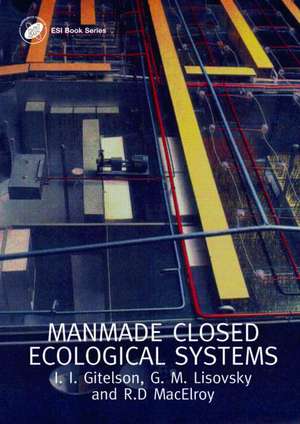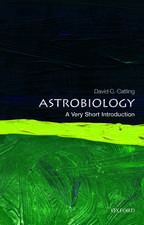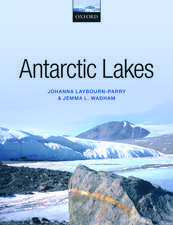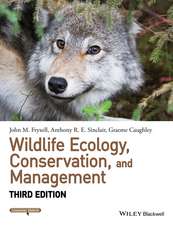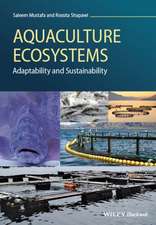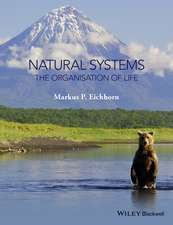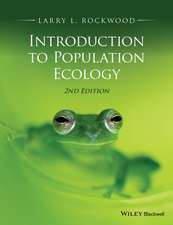Man-Made Closed Ecological Systems
Autor J.I. Gitelson, G.M. Lisovskyen Limba Engleză Hardback – 26 dec 2002
Preț: 1188.03 lei
Preț vechi: 1671.66 lei
-29% Nou
Puncte Express: 1782
Preț estimativ în valută:
227.32€ • 237.99$ • 188.10£
227.32€ • 237.99$ • 188.10£
Carte tipărită la comandă
Livrare economică 05-19 aprilie
Preluare comenzi: 021 569.72.76
Specificații
ISBN-13: 9780415299985
ISBN-10: 0415299985
Pagini: 416
Dimensiuni: 152 x 229 x 24 mm
Greutate: 0.8 kg
Ediția:New.
Editura: CRC Press
Colecția CRC Press
ISBN-10: 0415299985
Pagini: 416
Dimensiuni: 152 x 229 x 24 mm
Greutate: 0.8 kg
Ediția:New.
Editura: CRC Press
Colecția CRC Press
Public țintă
ProfessionalCuprins
Man-Made Closed Ecological Systems explores the interactions between humans, microorganisms, and plants in a closed habitat, and the life support systems necessary to maintain habitability over long periods of time. Problems and approaches involved in creating closed man-made ecological systems (CMESs) from a theoretical and experimental viewpoint are given. Topics include the cultivation of bacteria, microalgae and higher plants; the use of biotechnology to support life outside the Earth's biosphere; methods for recycling air, water and food for human consumption; interactions between humans and other organisms in CMESs; and methods for intensifying the level of photosynthesis. In addition to space the authors investigate problems associated with living conditions in dangerous or difficult environmental areas on Earth such as the Arctic and Antarctica, deserts and mountains.
Descriere
Providing a broad historical perspective, this book explores the interactions between humans, microorganisms, and plants in a closed habitat, and the life support systems necessary to maintain habitability over long periods of time. Topics include the cultivation of bacteria, microalgae and higher plants; the use of biotechnology to support life outside the Earth's biosphere; methods for recycling air, water and food for human consumption; interactions between humans and other organisms in CMESs; and methods for intensifying the level of photosynthesis. In addition to space the authors investigate problems associated with living conditions in dangerous or difficult environmental areas on Earth such as the Arctic and Antarctica, deserts and mountains.
